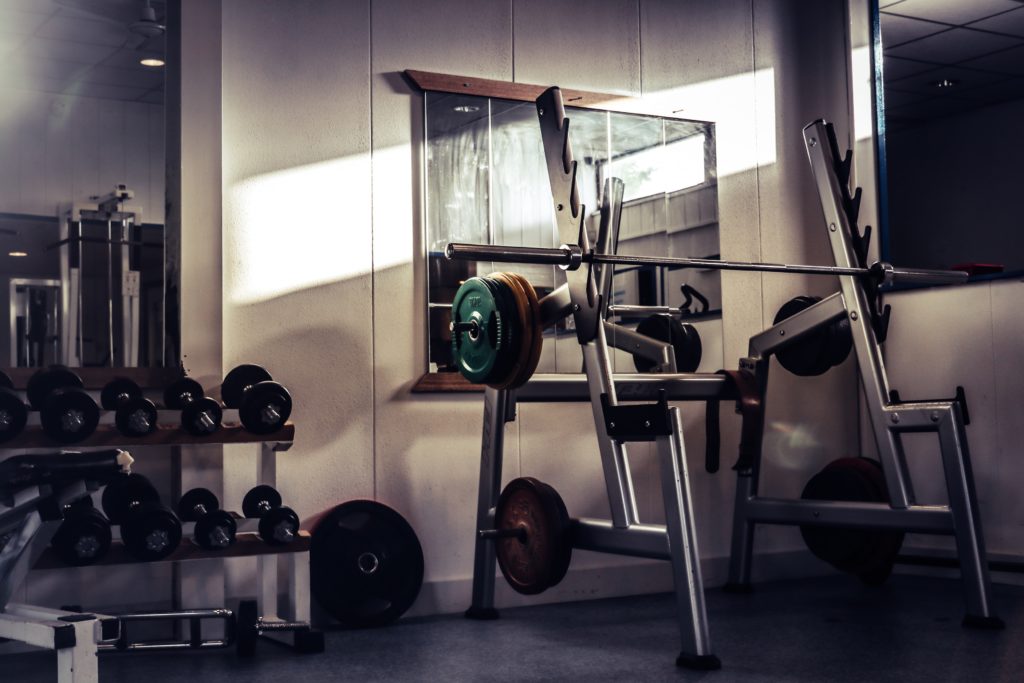
So welcome to the gym. You’ll notice the mirrors on the walls (Jam 1.22-25), as well as several exercise machines scattered around the room. Let’s talk a little about what they are and how they work.
The first exercise machine we find described in Acts 20. Paul is returning to Jerusalem from one of his mission trips, and he stops in Miletus, the port nearest Ephesus, where’s he spent two years ministering in the recent past (Ac 19.10). Because he’s in a hurry to get back to Jerusalem for one of the annual assembly feasts (Ac 20.16), he saves some time by sending for the elders of the church in Ephesus. They gather there on the dock beside the ship, and he gives them a farewell address; he knows there’s trouble ahead in Jerusalem (Ac 20.22-23), and he knows he may never see them again (Ac 20.25). (I think he did see them again [1Ti 1.3], after he was acquitted on his appeal to Caesar [2 Ti 4.16-17] just after the end of Acts, but that’s not an issue here.)
He charges them to lead the church well. He closes by saying,
And now I commend you to God and to the word of His grace, which is able to build you up and to give you the inheritance among all those who are sanctified (Ac 20.32).
We see our word grace here. To confirm that this verse is relevant to our study, we need to ask two questions:
- Does the context indicate that the word grace is being used in a narrower sense, of spiritual strength?
- Is there some sort of means indicated here that tells us how to receive the spiritual strength?
In answer to the first question, Paul says that this grace “is able to build you up,” which is a pretty clear reference to spiritual strength. And in answer to the second question, he ties the grace to “the word”—the “word of his grace,” the “grace-giving word,” if you will.
So the first exercise machine is the Word, the Scripture. If you exercise on it, it will make you stronger.
Now I suppose I need to press the metaphor a little further.
If you go to the gym—the physical one—and sit at an exercise machine and pump away, but without engaging any weights on the cable, will that be any benefit?
Technically, yes; depending on how fast you pump, you might get some cardio benefit, and depending on the range of motion, you might get some improved flexibility out of it.
But will you build any muscle?
Nope.
You build muscle by tearing muscle fiber, and you do that by engaging resistance against the muscle.
You need to put weights on the machine.
How do you put weights on the Bible machine?
May I suggest some possibilities?
- You do more than just read a verse or two and then get on with your day.
- You read it extensively. It’s common among believers to read through the Bible each year. That’s certainly a great place to start.
- You read it intensively. You read slowly, attentively, thoughtfully. You turn it over in your head. You draw conclusions and applications from it.
- You reach beyond your grasp. You read what others have written about the passage, especially others with study tools that you may not have for yourself.
- You memorize it, so you can turn it over in your mind anytime you have a spare minute.
- You write down what you’ve learned, so it will be cemented more solidly in your mind.
- You talk to others about it, both to hold yourself accountable and to benefit from their insights.
- You find opportunities to teach it, because the best way to learn anything is to teach it.
I’m not suggesting that you need to study your Bible for hours every day; you don’t spend hours on any exercise machine, because life calls. But you put weights on the machine, to increase the benefit of the time you spend there.
And you build muscle.
Next time, a different exercise machine.
Photo by Jelmer Assink on Unsplash

Leave a reply. Keep it clean.